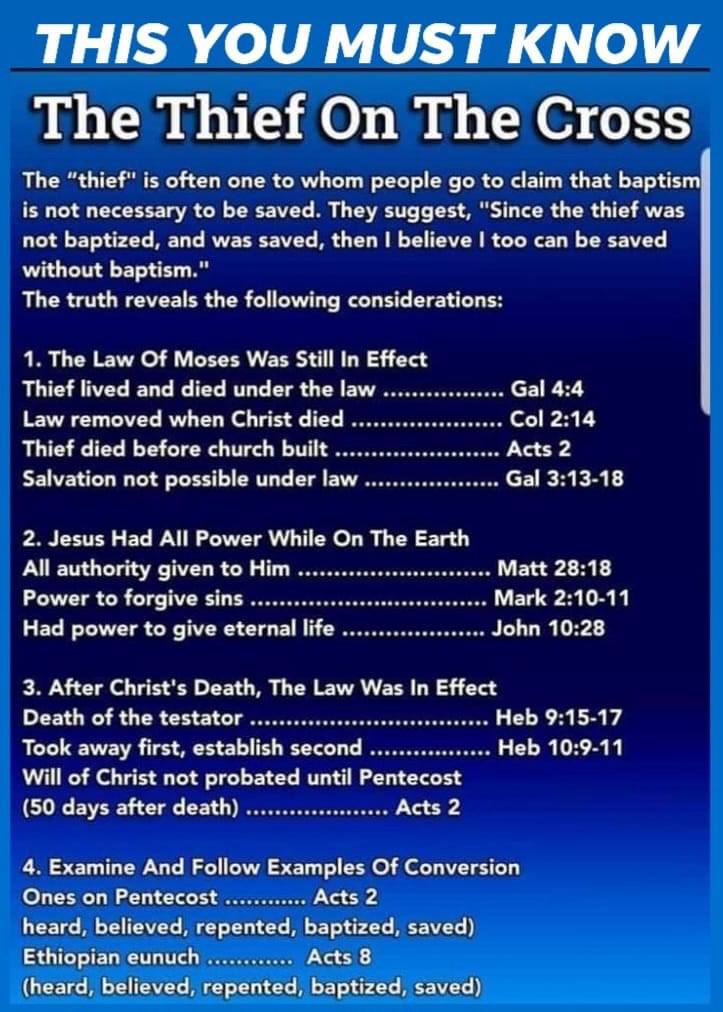
The Old Testament, with its rich tapestry of history, prophecy, and law, has always been a cornerstone of Judeo-Christian tradition. Among its most intriguing aspects are the laws that guided the Israelites through their daily lives, worship, and moral decisions. These laws, traditionally categorized into civil, ceremonial, and moral, not only shaped the society of ancient Israel but also hold profound spiritual significance for believers today. “Understanding Old Testament Laws: Civil, Ceremonial, and Moral” aims to delve into these distinct types of laws, shedding light on their purpose and the transformative fulfillment brought by Christ’s coming.
As we embark on this exploration, it’s crucial to recognize the context and divine intent behind these laws. They were given to the Israelites at a pivotal moment in their history, serving as a foundation for their covenant relationship with God. Yet, the advent of Christ introduced a new covenant, fulfilling the law in a way that transformed its application for future generations of believers. This article seeks to navigate the complex terrain of Old Testament laws, elucidating why, although Christ has fulfilled these laws, they continue to hold relevance and offer wisdom for Christians today.

Overview of Old Testament Laws
The Old Testament laws, given to the Israelites after their exodus from Egypt, were more than just rules; they were part of a covenant, a divine agreement between God and His people. These laws covered every aspect of life, from daily routines to spiritual practices, aiming to set apart the Israelites as God’s chosen people and guide them in a life of holiness and ethical integrity. To fully grasp the breadth and depth of these laws, it’s essential to understand their division into three main categories: civil, ceremonial, and moral.
Civil Laws: These laws governed the social and judicial aspects of Israelite life, ensuring justice, fairness, and harmony within the community. They addressed issues like property rights, marriage, and criminal offenses, reflecting the societal norms and values of the time.
Ceremonial Laws: Focused on worship and rituals, ceremonial laws prescribed how the Israelites were to approach God in the Tabernacle (and later the Temple), including sacrifices, festivals, and purity rites. These laws were symbolic, pointing forward to the Messiah and His ultimate sacrifice for sin.
Moral Laws: Universal and timeless, moral laws encapsulate God’s standard for righteous living. The Ten Commandments are the most famous example, covering fundamental principles like honoring God, respecting life, and maintaining personal integrity.
By categorizing the laws in this manner, we can appreciate their specific roles in guiding the Israelites and their continued relevance to us today. In the next sections, we’ll delve deeper into each type of law, exploring their implications and how Christ’s fulfillment of them opens a new chapter for believers.

Christ’s Fulfillment of the Old Testament Laws and Its Impact on Practices Like Baptism
One of the most profound aspects of Christ’s ministry was His fulfillment of the Old Testament laws, a pivotal act that redefined the covenant between God and His people. This fulfillment is crucial in understanding why some Old Testament laws are viewed differently in the light of Christ’s teachings, particularly practices like baptism.
In the New Testament, baptism emerges as a significant act of faith, symbolizing a believer’s identification with the death, burial, and resurrection of Jesus Christ. It represents a new birth, a cleansing of sin, and entry into the Christian community. But what about those who came before this sacrament was established, or those who, like the thief on the cross, embraced faith in Christ moments before death without the opportunity for baptism?
The story of the thief on the cross, as mentioned in Luke 23:39-43, offers a compelling insight into the nature of salvation and the grace of Christ. It demonstrates that while baptism is an important act of obedience for believers, the essence of salvation lies in faith in Jesus Christ. The thief, by acknowledging Jesus as Lord, was assured a place in Paradise, highlighting the principle that salvation is a gift of grace, not earned by works or rituals.
This account also addresses a common misconception regarding the necessity of following all Old Testament laws today. Just as Jesus assured salvation to the thief without the requirement of baptism, He also signified the transition from the Old Covenant, based on the law, to the New Covenant, based on grace through faith. This doesn’t negate the value or importance of baptism as commanded by Christ in the New Testament (Matthew 28:19-20) but emphasizes the transformative power of faith and grace.
As believers living in the era of the New Covenant, it’s essential to embrace both the teachings of Christ and the practices He instituted, including baptism, while recognizing the fulfillment of the Old Testament laws through His sacrifice. This understanding not only deepens our appreciation for the significance of baptism but also enriches our comprehension of salvation’s grace, as exemplified by the thief on the cross.
In navigating these theological concepts, it becomes clear that while the Old Testament laws provided a foundation, Christ’s coming ushered in a new way of relating to God, characterized by grace, faith, and the transformative act of baptism, marking a new life in Him.
Misconceptions About Following Old Testament Laws
In many Christian circles, there’s a debate over the relevance of Old Testament laws in the life of a believer post-Christ. Some argue that with Christ’s fulfillment of these laws, Christians are no longer bound by them, while others believe that they still hold moral and spiritual significance. This divergence often leads to misconceptions about how Christians should view and apply Old Testament teachings today.
The New Covenant and Grace
The heart of the matter lies in understanding the New Covenant, established through Christ’s sacrifice. This covenant is not about abolishing the law but fulfilling it in a way that allows believers to pursue righteousness through grace and faith rather than adherence to the law. As Paul writes in Romans 6:14, “For sin shall no longer be your master, because you are not under the law, but under grace.” This shift from law to grace is central to Christian doctrine, emphasizing salvation as a gift, not a reward for law-keeping.
The Role of the Moral Law
While civil and ceremonial laws were specific to the Israelite context, moral laws, such as those encapsulated in the Ten Commandments, reflect God’s unchanging character and His expectations for holy living. Jesus Himself said in Matthew 5:17-18, “Do not think that I have come to abolish the Law or the Prophets; I have not come to abolish them but to fulfill them.” Christ’s fulfillment of the law doesn’t negate the moral principles underlying it; rather, it sets a higher standard of love, mercy, and grace.
The Thief on the Cross: A Case Study in Grace
The story of the thief on the cross is often cited in discussions about the necessity of observing Old Testament laws. This event illustrates that salvation comes through faith in Christ alone, not through the observance of the law. The thief’s last-minute confession and Jesus’ assurance of his place in Paradise (Luke 23:43) underscore the power of grace and the shift from the law’s requirements to faith’s sufficiency.
Navigating Old Testament Laws Today
Believers are called to read and understand the Old Testament through the lens of Christ’s fulfillment. This doesn’t mean discarding the Old Testament but rather interpreting its laws with discernment and understanding their purpose in the broader narrative of redemption. Christians are to live by the moral principles of the law, as fulfilled and taught by Christ, embracing a life of love, mercy, and grace that goes beyond legalistic adherence.

Addressing Common Objections: Old Testament Laws and Christian Faith
In dialogues about faith, Christians often encounter questions or challenges based on Old Testament laws, particularly from those outside the faith. Non-Christians sometimes reference these ancient commandments, questioning their relevance or using them to critique Christianity. Understanding how to address these objections is crucial for meaningful conversations about faith and the role of the Old Testament today.
Dietary Laws and Restrictions
One of the most frequently cited examples involves the Old Testament’s dietary laws, such as the prohibition against eating pork or shellfish, found in Leviticus 11. Critics ask why Christians don’t adhere to these dietary restrictions if they claim to follow the Bible. The answer lies in Acts 10, where Peter receives a vision that declares all foods clean, symbolizing the removal of barriers between Jews and Gentiles and highlighting the transition from Old Covenant laws to the New Covenant of grace.
Fabric Mixing and Other Ceremonial Laws
Another point often raised involves laws about fabric mixing, such as the prohibition against wearing clothing made of two different materials (Leviticus 19:19). This, along with other ceremonial laws, is sometimes used to suggest that the Bible is outdated or irrelevant. In addressing this, it’s important to explain the symbolic nature of many ceremonial laws and how they pointed to holiness and separation for the Israelites. Christ’s fulfillment of the law means Christians are called to a different kind of separation – one of heart and spirit, not of fabric or dietary habits.
Capital Punishment for Various Offenses
Critics also point to the harsh penalties for certain offenses in the Old Testament, such as capital punishment for adultery or blasphemy, questioning how a loving God could endorse such measures. This objection requires a nuanced response that acknowledges the historical and cultural context of these laws, their role in maintaining order and holiness among the Israelites, and the overarching theme of justice in the Bible. Moreover, it’s crucial to highlight Jesus’ teachings on mercy, forgiveness, and the value of every individual, which underscore the transformative power of His message and ministry.
Slavery and Social Justice
The Old Testament’s references to slavery are often brought up in discussions about morality and the Bible. Addressing this issue involves acknowledging the vastly different context of ancient servitude compared to modern understandings of slavery, the provisions for humane treatment and eventual freedom for servants, and the Bible’s overarching themes of liberation and equality, as exemplified in the Exodus narrative and affirmed by Jesus’ teachings.
Defending Your Faith Amidst Criticism of Old Testament Laws
When faced with criticism or attacks from non-Christians regarding the seemingly brutal or outdated Old Testament laws, Christians are called to respond with wisdom, grace, and informed apologetics. Here’s how to defend your faith while explaining the context and fulfillment of these laws through Christ.
Understand the Context
First, it’s crucial to understand and explain the historical and cultural context of the Old Testament laws. Many of these laws were given to the Israelites at a specific time in history for particular reasons, including distinguishing them from surrounding nations, protecting them from diseases, and teaching them about holiness and justice. Acknowledging this context can help clarify why certain laws were necessary at the time.
Emphasize Christ’s Fulfillment
Central to any discussion about Old Testament laws is the understanding that Christ came to fulfill the law, not to abolish it (Matthew 5:17). This fulfillment is key to the Christian faith. Jesus’ life, death, and resurrection accomplished what the law could not – the redemption and reconciliation of humanity to God. As Christians, we live under a new covenant of grace, where the spirit of the law – love, justice, mercy – is written on our hearts (Hebrews 8:10).
Highlight the Moral Principles
While some specific Old Testament laws do not directly apply to Christians today, the moral principles underlying them remain relevant. The Ten Commandments, for example, continue to guide Christian ethics and behavior. Discussing how Jesus summarized the law into two commandments – loving God and loving your neighbor (Matthew 22:37-40) – can help illustrate how the essence of the law is still applicable and beneficial in guiding moral and ethical decisions.
Approach with Grace and Understanding
When responding to criticisms, approach the conversation with grace and understanding rather than defensiveness. Recognize that these questions often stem from genuine curiosity or confusion about the Christian faith. By listening carefully and responding thoughtfully, you can create an opportunity for meaningful dialogue about the nature of God, the purpose of the law, and the transformative power of the gospel.
Use Apologetics Wisely
Be prepared to use apologetics – the reasoned defense of the Christian faith – to explain difficult topics. This might involve familiarizing yourself with resources or arguments that address common criticisms of Old Testament laws. However, always prioritize the relationship and the person over winning an argument. Showing compassion and respect can be more impactful than having all the right answers.

Share Personal Testimony
Lastly, don’t underestimate the power of your personal testimony. Sharing how your understanding of God’s laws and Christ’s fulfillment has impacted your life can be a powerful witness. Personal stories of transformation and grace can often speak louder than theological debates.
Navigating conversations about the Old Testament laws requires patience, love, and a deep reliance on the Holy Spirit for wisdom. Remember, the goal isn’t to win an argument but to bear witness to the grace and truth of the gospel.
As an Amazon Associate we earn from qualifying purchases through some links in our articles.



